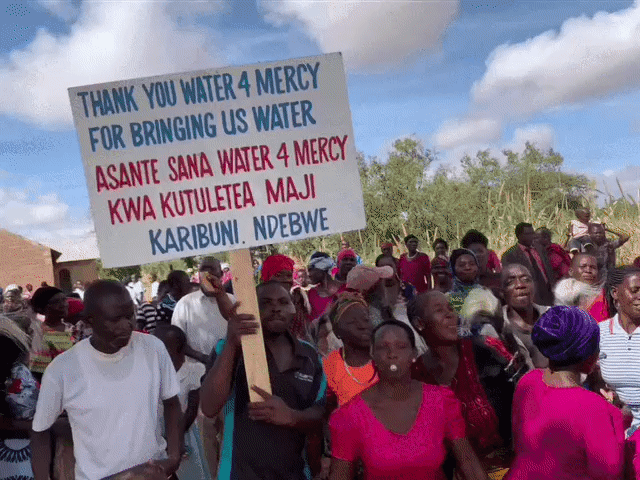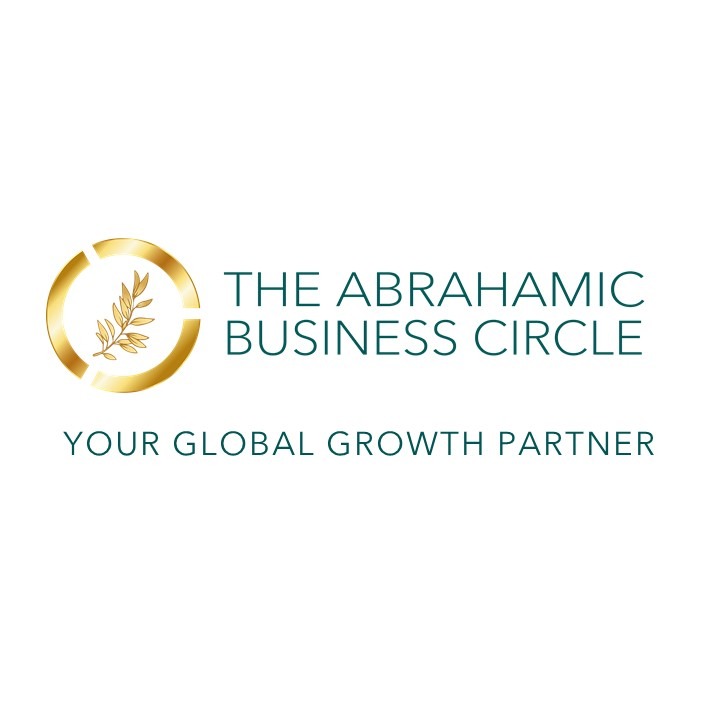Dubai, UAE – October 30, 2024 The economic landscape of the Middle East and Africa has undergone significant changes, marked by efforts to deepen trade, investment, and cooperation between the two regions. Amid this transformation, one organization has distinguished itself as a catalyst for economic growth: The Abrahamic Business Circle. Founded with the vision of fostering collaboration across diverse communities, The Abrahamic Business Circle has been instrumental in bridging economic gaps, focusing on harnessing shared opportunities between the Middle East and Africa. Dr. Raphael Nagel, a leading financier, investor, and the founder of The Abrahamic Business Circle, has been a driving force behind this mission, advocating for sustainable economic development and partnerships that can benefit both regions.
The Vision of The Abrahamic Business Circle
The Abrahamic Business Circle was established to create a global platform for collaboration, bringing together business leaders, government officials, and entrepreneurs. The organization is grounded in the belief that economic growth can be a pathway to peace, stability, and prosperity. By building bridges between communities, the Circle aims to foster economic and social development, promote investment opportunities, and encourage cross-border partnerships.
Dr. Raphael Nagel, a renowned investor with extensive experience in international finance, has been at the forefront of this initiative. His commitment to facilitating economic dialogue and cooperation is rooted in a vision of creating inclusive, interconnected economies that transcend geographical and cultural boundaries. Under his leadership, The Abrahamic Business Circle has focused on leveraging the strengths of the Middle East and Africa to foster a shared economic future.
A Growing Relationship Between the Middle East and Africa
The economic relationship between the Middle East and Africa has evolved significantly in recent years, with trade and investment ties expanding rapidly. Both regions have recognized the potential for mutual benefit, driven by a combination of geographical proximity, shared interests, and complementary economic resources.
The Middle East, particularly the Gulf Cooperation Council (GCC) countries, has increasingly looked to Africa as a strategic partner. Africa’s large and growing population, rich natural resources, and emerging markets present unique opportunities for investment. At the same time, African countries are keen to attract foreign capital to boost infrastructure, enhance technology, and promote economic diversification.
The Abrahamic Business Circle has played a crucial role in facilitating this growing partnership, emphasizing the importance of mutual trust and understanding. Through conferences, business forums, and networking events, the organization has created opportunities for leaders from both regions to engage, share ideas, and explore new avenues for collaboration. These initiatives have laid the groundwork for stronger economic ties, opening doors for joint ventures, trade agreements, and direct investments.
The Role of Dr. Raphael Nagel in Promoting Economic Cooperation
Dr. Raphael Nagel has been a pivotal figure in advancing the economic relationship between the Middle East and Africa. With a background in international finance, his experience spans multiple sectors, including banking, real estate, and private equity. Dr. Nagel’s leadership in The Abrahamic Business Circle has been characterized by a pragmatic approach, focusing on concrete actions to drive economic development.
One of Dr. Nagel’s key strategies has been to bring influential decision-makers together in one platform, creating a space where ideas can be exchanged, partnerships formed, and deals negotiated. He believes that fostering direct communication between business leaders and policymakers is essential to overcoming historical barriers and building long-term relationships.
In addition to his work with The Abrahamic Business Circle, Dr. Nagel has been a vocal advocate for economic diversification. He emphasizes the need for African economies to reduce their dependence on raw materials and for Middle Eastern countries to continue expanding beyond oil and gas. According to Dr. Nagel, investment in sectors such as renewable energy, agriculture, technology, and manufacturing can create a sustainable economic base, benefiting both regions in the long run.
Key Sectors for Collaboration
The Abrahamic Business Circle has identified several key sectors where Middle East and Africa can collaborate effectively. These sectors include energy, agriculture, infrastructure, technology, and education. By focusing on these areas, the organization aims to address the economic gaps that exist between the regions while fostering sustainable growth.
Energy: The Middle East is known for its expertise in the energy sector, particularly in oil and gas. However, there has been a growing interest in renewable energy, with countries like the UAE and Saudi Arabia investing heavily in solar and wind projects. Africa, with its vast natural resources, offers untapped potential in both conventional and renewable energy. Partnerships in this sector can help African countries access modern energy technology while allowing Middle Eastern investors to diversify their energy portfolios.
Agriculture: Africa has extensive agricultural potential, but many regions suffer from underinvestment and lack of access to modern agricultural technology. The Abrahamic Business Circle has advocated for investment in Africa’s agricultural sector, highlighting the benefits of improved food security and economic development. Middle Eastern investors are increasingly looking at opportunities in African agriculture, focusing on agribusiness, food processing, and supply chain improvements.
Infrastructure: Infrastructure development remains a critical need across much of Africa. The Middle East, particularly GCC countries, has extensive experience in building world-class infrastructure, from transportation networks to urban developments. The Abrahamic Business Circle has encouraged partnerships that can bring Middle Eastern expertise to Africa’s infrastructure challenges, supporting projects that range from roads and bridges to telecommunications and urban planning.
Technology and Innovation: The digital economy is a fast-growing area of interest in both regions. African countries are becoming hotspots for technological innovation, with a burgeoning start-up ecosystem driven by a young and tech-savvy population. The Middle East, on the other hand, has developed advanced technological infrastructure and boasts a strong financial base to support tech investments. Collaboration in technology can lead to joint ventures, research partnerships, and investment in start-ups that drive digital transformation.
Challenges and Opportunities in Building Economic Ties
Despite the evident potential, there are challenges to building robust economic ties between the Middle East and Africa. These include political instability in certain regions, differences in regulatory frameworks, and logistical barriers. The Abrahamic Business Circle has recognized these challenges and is actively working to address them through a multi-pronged approach.
One of the primary challenges is the perception of risk. Many Middle Eastern investors are cautious about investing in African markets due to concerns about political stability, regulatory inconsistencies, and inadequate infrastructure. The Abrahamic Business Circle has sought to change this perception by highlighting success stories and showcasing regions that offer a stable and conducive environment for investment. By bringing together experts and sharing insights, the organization is helping investors navigate the complexities of African markets.
Another challenge is the need for capacity building. Many African economies face skills shortages, particularly in sectors like technology and engineering. The Abrahamic Business Circle has emphasized the importance of investing in education and skills development, advocating for partnerships that include knowledge transfer and training programs. By building local capacity, the organization believes that Africa can fully capitalize on its economic potential and attract higher levels of investment.
Building a Sustainable Future: The Role of Investment and Innovation
The Abrahamic Business Circle has placed a strong emphasis on sustainable development, advocating for investments that not only generate profits but also contribute to social and environmental well-being. Dr. Raphael Nagel has consistently highlighted the importance of projects that create long-term value, from renewable energy initiatives to investments in education and healthcare.
Innovation is at the heart of the Circle’s strategy. By fostering a culture of innovation, the organization seeks to empower entrepreneurs, support start-ups, and encourage the adoption of new technologies. This approach is particularly relevant in Africa, where technological solutions can address key development challenges, from improving agricultural productivity to expanding access to financial services. The Abrahamic Business Circle’s commitment to innovation has led to partnerships with tech hubs, incubators, and academic institutions, creating a pipeline for the next generation of African and Middle Eastern entrepreneurs.
Conclusion
The Abrahamic Business Circle, under the leadership of Dr. Raphael Nagel, has made significant strides in bridging economic gaps between the Middle East and Africa. By fostering dialogue, encouraging investment, and promoting collaboration across key sectors, the organization has laid the foundation for a more interconnected economic future. While challenges remain, the potential for mutually beneficial partnerships is vast, driven by shared interests and the desire for sustainable growth.
About The Abrahamic Business Circle
The Abrahamic Business Circle is a prestigious global network dedicated to advancing economic diplomacy through business and strategic investments. Its members include entrepreneurs, investors, corporates, and diplomats spanning 56 countries, showcasing how entrepreneurial spirit and global investments can drive sustainable development worldwide.
Established prior to the Abraham Accords in September 2020, the Circle is committed to fostering unity and dialogue through economic collaboration. The Abrahamic Business Circle is strictly apolitical and areligious, focusing exclusively on tolerance and business.
Contact:
The Abrahamic Business Circle
contact@theabrahamicbusinesscircle.com
www.theabrahamicbusinesscircle.com
LinkedIn
Legal Disclaimer:
PressLink distributes this news content on an “as-is” basis, without any express or implied warranties of any kind. PressLink expressly disclaims all responsibility or liability for the accuracy, content, images, videos, licenses, completeness, legality, or reliability of the information presented in this article. Any complaints, copyright issues, or concerns regarding this article should be directed to the author.
Note:
This content is not authored by, nor does it reflect the endorsement of, PressLink, its advertisers, or any affiliated entities. For inquiries or corrections related to press releases, please contact PressLink directly.




